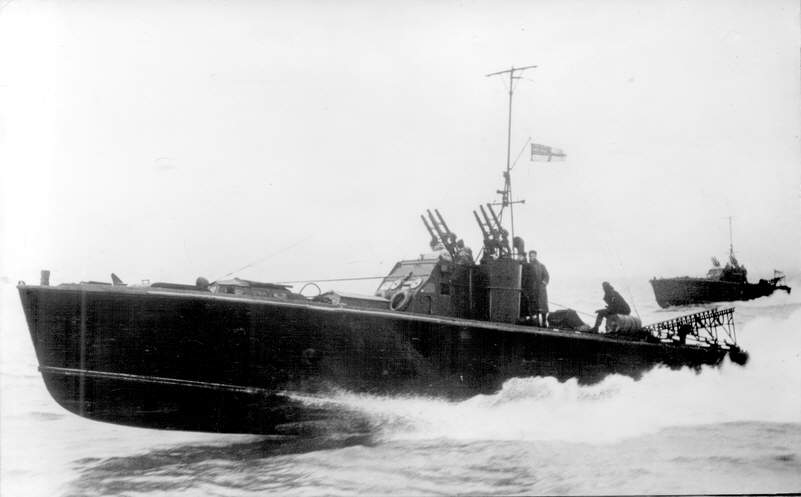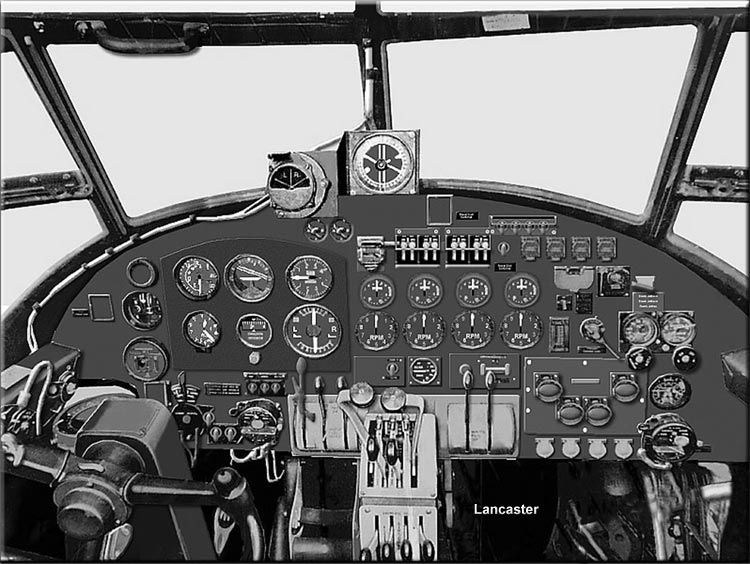Protected occupations in the World Wars
Discussion
Alot of attention gets paid to the service men and women who fought in the World Wars, but not a great deal of attention gets paid to those who had a protected occupation during times of conflict.
My Paternal Grandfather tried joining up at the start of WW2 but got turned away for two reasons. the first was that his glasses were like milk bottles and he would have been a danger to everyone with a gun, the other was that he was a boat builder.
He was told to stay at his boatyard in Looe, Cornwall and build boats rather than fight.
He ended up producing rather a lot of these:

They were amazing boats. The fastest ones had three Rolls Royce Meteor engines (that's 81 litres!) on 3 propellors. They were Plywood construction and industries like piano makers were conscripted to cut out the ply panels to size. The parts were then sent to the boatyards for people like my Grandfather to assemble.
The OH's Paternal Grandfather was a miner in Staffordshire which, again, was a protected occupation.
Did anyone else have relatives in protected occupations during the wars?
My Paternal Grandfather tried joining up at the start of WW2 but got turned away for two reasons. the first was that his glasses were like milk bottles and he would have been a danger to everyone with a gun, the other was that he was a boat builder.
He was told to stay at his boatyard in Looe, Cornwall and build boats rather than fight.
He ended up producing rather a lot of these:

They were amazing boats. The fastest ones had three Rolls Royce Meteor engines (that's 81 litres!) on 3 propellors. They were Plywood construction and industries like piano makers were conscripted to cut out the ply panels to size. The parts were then sent to the boatyards for people like my Grandfather to assemble.
The OH's Paternal Grandfather was a miner in Staffordshire which, again, was a protected occupation.
Did anyone else have relatives in protected occupations during the wars?
Yep.
Paternal Grandfather was a farmer...Dad says he really wanted to join up and be a tank driver (as he could drive track laying stuff) but because he was in a reserved occupation he never got the chance.
Maternal Grandfather was a techie (or a 40's version anyway) in the RAF and he stayed on till 47 i think.
Paternal Grandfather was a farmer...Dad says he really wanted to join up and be a tank driver (as he could drive track laying stuff) but because he was in a reserved occupation he never got the chance.
Maternal Grandfather was a techie (or a 40's version anyway) in the RAF and he stayed on till 47 i think.
Yes both my grandfathers:
My Dads side was a miner in the Durham coalfields and was a mine rescue officer too.
My Mums Side was a victualler working loading the warships in the dockyard at Chatham. He was a teetotaler in charge of the bond for alcohol!
Dad made up for it though 32 years in the Royal Navy serving in Korea and Aden and then the MOD.
My Dads side was a miner in the Durham coalfields and was a mine rescue officer too.
My Mums Side was a victualler working loading the warships in the dockyard at Chatham. He was a teetotaler in charge of the bond for alcohol!
Dad made up for it though 32 years in the Royal Navy serving in Korea and Aden and then the MOD.
My Grandfather was a metallurgist at a Firth Brown, a Sheffield steel foundry. He was told to stay there producing metals for the war effort rather than fight himself.
He was a bit annoyed about it at the time by all accounts. It was only after the war that he realised that his actions were rather valuable.
He was a bit annoyed about it at the time by all accounts. It was only after the war that he realised that his actions were rather valuable.
My Grandfather was working for MacTaggart Scott in Loanhead just outside Edinburgh where they manufactured seaplane catapults, arresting gear for aircraft carriers and submarine equipment including vent valves, bow caps, mast hoisting jiggers and torpedo loading presses.
He started as an apprentice when he left school and was still an honourary member of the board when he died aged 97. A fantastic man who worked hard and made something of his life.
He started as an apprentice when he left school and was still an honourary member of the board when he died aged 97. A fantastic man who worked hard and made something of his life.
bern said:
Out of interest, has anybody got a list of protected occupations?
From Wikipedia (no idea how complete it is):* Dock Workers
* Miners
* Farmers
* Scientists
* Merchant Seamen
* Railway Workers
* Utility Workers - Water, Gas, Electricity
* Teachers and university lecturers
* Doctors (Unless in the Territorial Army)
* Police officers
* Certain Civil Servants
* Students (Only for the duration of their studies. Undergraduates were deferred, but not fully exempted. They could be conscripted at the end of their studies, unless they had a criminal record or ill health)
* Priests, monks, nuns and anyone in Holy orders
* Journalists (Though they may have been sent to the front, even running the risk of being shot or held by the enemies as spies. Some worked as intelligence officers during WW2.)
* Some artists involved in propaganda work
* Other media workers (especially those involved in technical roles, such as lighting engineers, electricians, cameramen, photographers, sound engineers, etc.)
* Anyone running a small business, including government and local council contractors and their employees.
* Local authority employees
* Bank employees and employees of insurance companies
* company directors
* Veterinary surgeons
Ganglandboss said:
bern said:
Out of interest, has anybody got a list of protected occupations?
From Wikipedia (no idea how complete it is):* Dock Workers
* Miners
* Farmers
* Scientists
* Merchant Seamen
* Railway Workers
* Utility Workers - Water, Gas, Electricity
* Teachers and university lecturers
* Doctors (Unless in the Territorial Army)
* Police officers
* Certain Civil Servants
* Students (Only for the duration of their studies. Undergraduates were deferred, but not fully exempted. They could be conscripted at the end of their studies, unless they had a criminal record or ill health)
* Priests, monks, nuns and anyone in Holy orders
* Journalists (Though they may have been sent to the front, even running the risk of being shot or held by the enemies as spies. Some worked as intelligence officers during WW2.)
* Some artists involved in propaganda work
* Other media workers (especially those involved in technical roles, such as lighting engineers, electricians, cameramen, photographers, sound engineers, etc.)
* Anyone running a small business, including government and local council contractors and their employees.
* Local authority employees
* Bank employees and employees of insurance companies
* company directors
* Veterinary surgeons
it's a wonder there was anyone left to send!
Maternal grandfather was a coal miner up near Newcastle, he ended up being part of the Dad's Army.
Oddly enough one man he worked with somehow managed to get himself in to the navy despite being a protected worker, he was an only child and his parents encouraged him to join it because they believed being out at sea would be safer than being underground. His ship was sunk by the Germans and his body was never recovered
Paternal grandfather was too young, and his father was too old, they time their boys well on that side!
Oddly enough one man he worked with somehow managed to get himself in to the navy despite being a protected worker, he was an only child and his parents encouraged him to join it because they believed being out at sea would be safer than being underground. His ship was sunk by the Germans and his body was never recovered

Paternal grandfather was too young, and his father was too old, they time their boys well on that side!
AngryApples said:
Ganglandboss said:
bern said:
Out of interest, has anybody got a list of protected occupations?
From Wikipedia (no idea how complete it is):* Dock Workers
* Miners
* Farmers
* Scientists
* Merchant Seamen
* Railway Workers
* Utility Workers - Water, Gas, Electricity
* Teachers and university lecturers
* Doctors (Unless in the Territorial Army)
* Police officers
* Certain Civil Servants
* Students (Only for the duration of their studies. Undergraduates were deferred, but not fully exempted. They could be conscripted at the end of their studies, unless they had a criminal record or ill health)
* Priests, monks, nuns and anyone in Holy orders
* Journalists (Though they may have been sent to the front, even running the risk of being shot or held by the enemies as spies. Some worked as intelligence officers during WW2.)
* Some artists involved in propaganda work
* Other media workers (especially those involved in technical roles, such as lighting engineers, electricians, cameramen, photographers, sound engineers, etc.)
* Anyone running a small business, including government and local council contractors and their employees.
* Local authority employees
* Bank employees and employees of insurance companies
* company directors
* Veterinary surgeons
it's a wonder there was anyone left to send!
Gassing Station | The Lounge | Top of Page | What's New | My Stuff




